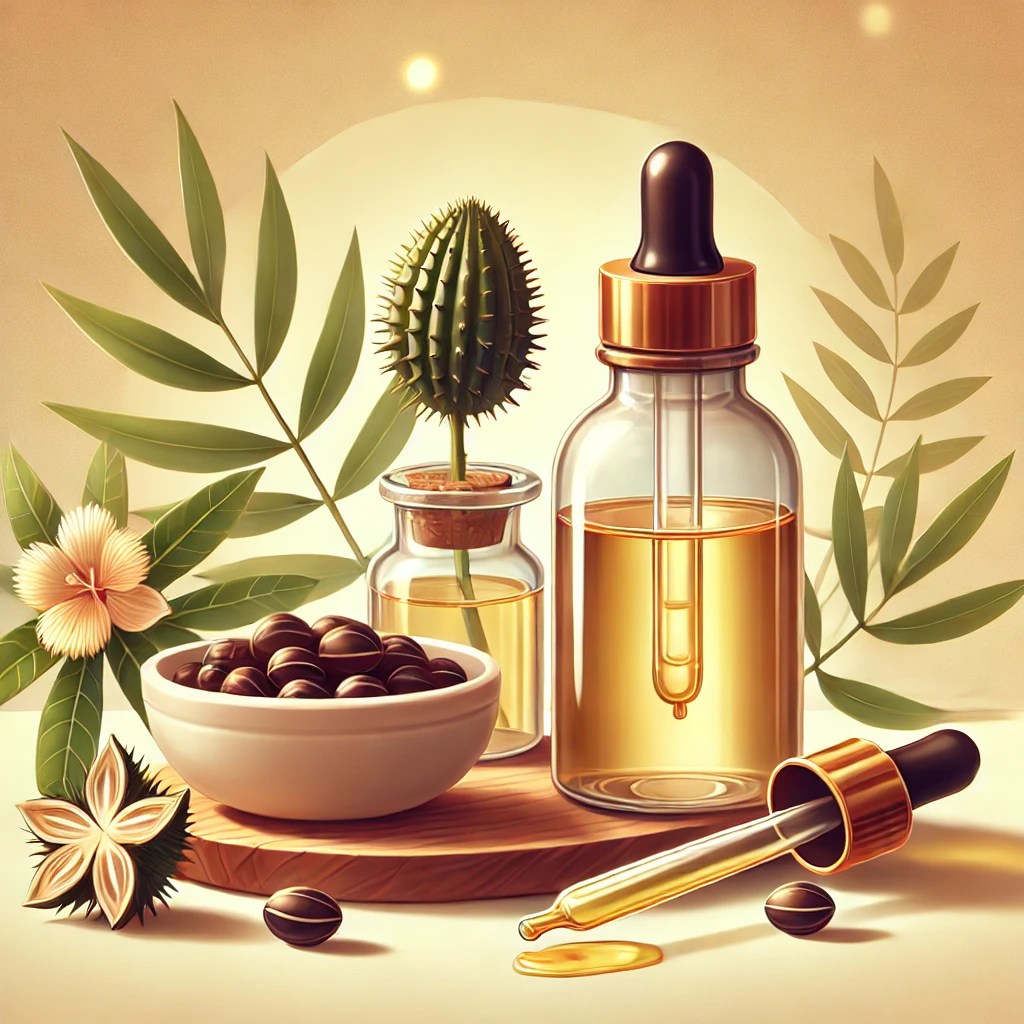Castor oil has gained popularity as a natural remedy for various skin concerns, including dryness, inflammation, and even acne. Known for its thick consistency and high ricinoleic acid content, castor oil is rich in nutrients that can provide a range of skincare benefits. Here’s everything you need to know about using castor oil on your face for healthier, more radiant skin.
What Is Castor Oil?
Castor oil is a vegetable oil derived from castor beans, native to tropical regions. It’s rich in fatty acids, particularly ricinoleic acid, which has been shown to have anti-inflammatory and moisturizing properties. These qualities make castor oil a versatile ingredient in skincare and a popular choice for natural beauty routines.
Benefits of Castor Oil for Facial Skin
- Moisturizes and Hydrates
Castor oil’s rich fatty acids create a protective barrier on the skin, helping to lock in moisture. This makes it particularly beneficial for dry or flaky skin. By deeply hydrating, castor oil can leave your skin feeling soft and smooth. - Reduces Inflammation
The ricinoleic acid in castor oil has anti-inflammatory properties, making it helpful for calming irritated or inflamed skin. People with conditions like eczema or rosacea may find it useful for reducing redness and discomfort. - Acts as a Natural Cleanser
Oil-based cleansing is a popular method for removing makeup, excess oil, and impurities without stripping the skin of its natural oils. Castor oil can dissolve dirt and oil, making it a great choice for gentle cleansing. - Promotes Skin Healing
Castor oil contains antioxidants that can help protect the skin from oxidative damage caused by free radicals. Additionally, its fatty acid content supports skin regeneration, potentially aiding in the healing of minor skin issues. - May Help with Acne
While castor oil is thick, its antibacterial and anti-inflammatory properties may help balance the skin’s natural oils and reduce acne-causing bacteria. Its application should be moderate, especially for those with oily or acne-prone skin.
How to Use Castor Oil on Your Face
1. Moisturizer
Castor oil can be used as a nighttime moisturizer to keep skin hydrated.
- Instructions: Apply a few drops of castor oil to your face after cleansing, gently massaging it into the skin. Leave it on overnight, and rinse in the morning if needed.
2. Oil Cleanser
Use castor oil to cleanse your skin, especially as part of a double-cleansing routine.
- Instructions: Massage a small amount of castor oil onto dry skin, focusing on areas with makeup or impurities. Use a warm, damp cloth to gently remove the oil and any residual dirt.
3. Spot Treatment
For inflamed or acne-prone areas, a small amount of castor oil can help reduce redness and irritation.
- Instructions: Dab a cotton swab in castor oil and apply it to affected areas. Allow it to sit overnight for maximum effect.
4. Mix with Other Oils
Castor oil can be combined with lighter oils, like jojoba or rosehip, to balance its thick texture while still benefiting from its nutrients.
- Instructions: Mix a few drops of castor oil with another carrier oil and apply it as a facial oil or serum.
Tips for Using Castor Oil Safely
- Patch Test First: Always perform a patch test before applying castor oil to your face to check for any sensitivities.
- Use in Moderation: Castor oil is thick and highly emollient, so a little goes a long way. Avoid applying large amounts to prevent clogged pores.
- Consider Your Skin Type: While castor oil is beneficial for many skin types, those with extremely oily or acne-prone skin may prefer using it in smaller amounts or as part of a blend.
Potential Drawbacks of Castor Oil for Skin
Although castor oil has many benefits, it may not be suitable for everyone. Due to its thickness, it can clog pores in some individuals, especially if applied excessively. Additionally, the oil’s strong scent can be off-putting to some users.
Final Thoughts
Castor oil is a versatile, natural ingredient that can enhance your skincare routine by providing hydration, reducing inflammation, and promoting skin health. By following these tips and using it in moderation, you can enjoy its benefits and achieve a nourished, glowing complexion.
Share this content:



